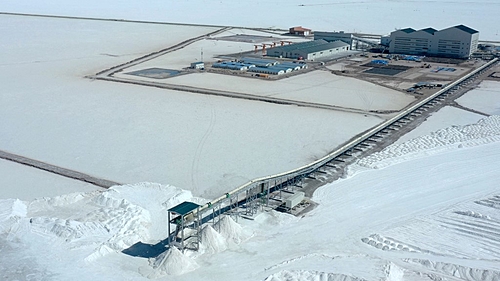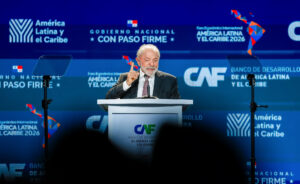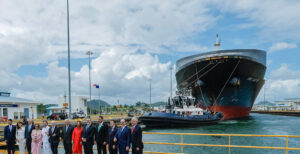
Around 57% of the world’s lithium deposits are located in the triangle formed by Argentina, Bolivia and Chile. It is a highly requested raw material, due to its use in the production of batteries for electric cars. In this fierce competition are the Chinese, who have invested billions around the world to secure a strategic leadership position. Still ahead of the Europeans, there are also the USA.
On the other hand, Germany, which is an automobile nation par excellence, is lagging behind. It will therefore be necessary to make up for the damage when the German Federal Chancellor, Olaf Scholz, travels to Argentina, Chile and Brazil starting this weekend.
“Compared to China, but also to other countries, Germany is still not very present in the lithium triangle of South America. In any case, there are initiatives to change that”, Carl Moses, economic expert and consultant, told DW from Buenos Aires.
Chances na Argentina
Two German companies have their foot in Argentina and Chile. The relatively young company Deutsche E-Metalle (DEM) is one of them and plans to “become one of the world’s leading specialists in the areas of e-materials and e-mobility, which are part of the current supercycle of electric mobility”, according to the website of the company itself. This should be made possible, among other things, by indirect access to a large portfolio of exploration licenses (more than 70,000 hectares) in the lithium triangle in Argentina.
China doesn’t budge from here either: recently, the Chinese company Ganfeng acquired the Argentine company Lithea, owner of the licenses for two lithium salt lakes, for US$962 million. Tibet Summit Resources, also from China, wants to invest two billion euros in lithium exploration projects in Argentina.
Opportunities not Chile
The situation in Chile is a little more difficult for the Germans than in Argentina. In the country, it is not clear which regulatory framework the new Constitution will grant to foreign companies, which still needs to be politically negotiated. Livede, a company from the German state of Thuringia, signed a cooperation agreement with Chilean partners in the Salar de Maricunga in October 2022 and is just waiting to start work.
China is also very active in Chile: Beijing recently secured a 24% stake in the Chilean company SQM, currently one of the largest lithium producers in the world. There are also other licenses for other Chinese companies.
Chances for advancement in the medium term can be felt especially in Chile, where the Chilean government’s sustainable thinking is fully aligned with German precepts. According to sources close to President Gabriel Boric, his government, eager for greater state control over lithium production and its value chain, is open to German cooperation.
Source: www.brasildefato.com.br

